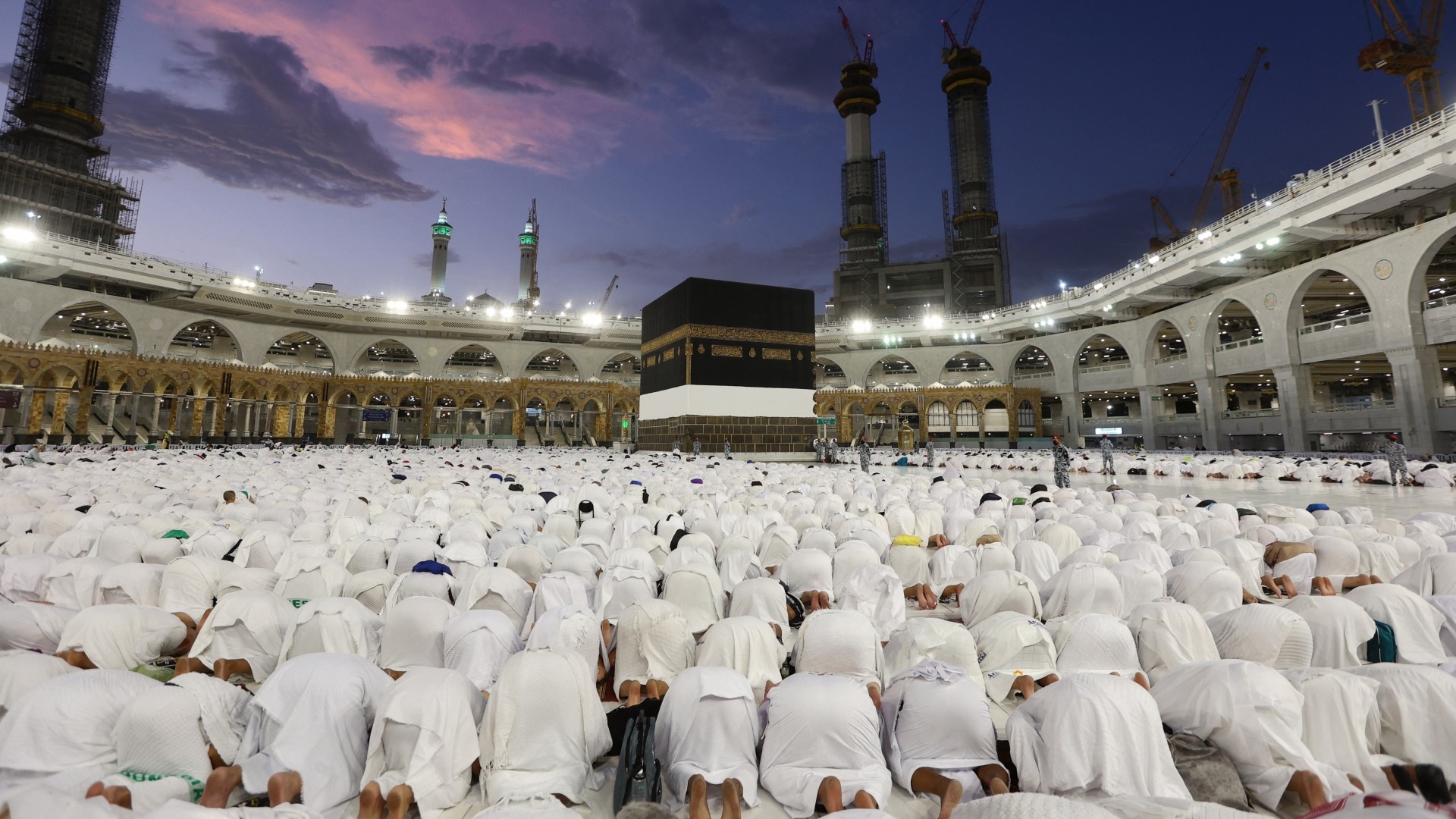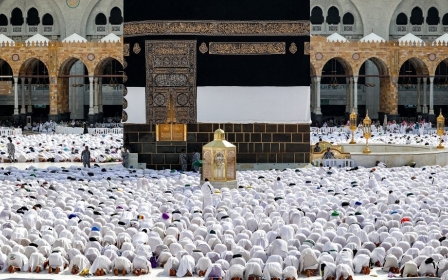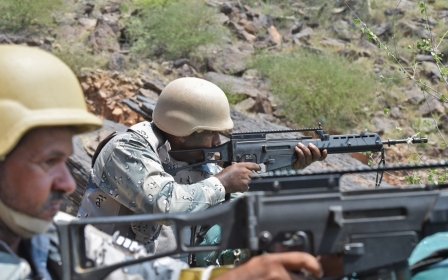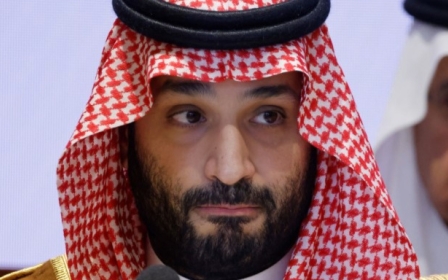Saudi minister sparks outrage for saying there's no place in Hajj for 'political slogans'

Saudi Arabia's minister of Hajj and Umrah faced a deluge of criticism on Friday after he said the kingdom would not allow "political slogans" to take place during the Hajj, in an apparent reference to acts of solidarity with Palestinians amid Israel's ongoing war on Gaza.
Tawfiq al-Rabiah told reporters in Riyadh that the Hajj is "known to be a form of worship, and we are keen to ensure peace so that everyone can perform their rituals with ease".
He went on to add that "therefore, Hajj is for worship and not for any political slogans, and this is what the leadership of the kingdom want to ensure - that Hajj contains the highest manifestations of humility, tranquillity and spirituality."
Minister of Hajj:
— Inside the Haramain (@insharifain) June 6, 2024
“Hajj is for worship only, not for political slogans.”
pic.twitter.com/TppbfvymnF
The comments drew the ire of many prominent Muslim social media users who questioned the vague wording of the statement, which appeared to reference global protests against the devastating war on Gaza and the outpouring of Muslim support for the Palestinian cause.
New MEE newsletter: Jerusalem Dispatch
Sign up to get the latest insights and analysis on Israel-Palestine, alongside Turkey Unpacked and other MEE newsletters
"Islam is a way of life. There's no divide between the 'political' and 'worship' part of Islam. The Prophet Muhammad would discuss political and battle strategy in the masjid," one user noted.
Another highlighted that the Hajj is a time to reflect on the essence of being a Muslim, which includes "acting against oppression".
Meanwhile, others noted that despite being a regional political heavyweight, Saudi Arabia maintained a stance of mitigated diplomatic engagement, undermining the ruling al-Saud royal family's religious and moral authority as custodians of the Two Holy Mosques.
"With the ongoing holocaust in Gaza, the Saudi regime's silence is abhorrent to any human being let alone Muslims," one user said.
Some highlighted what they perceived as a double standard in the instructions from Saudi authorities noting that praising the crown prince would likely not be considered a 'political' problem.
Among the criticism, political analyst Sami Hamdi questioned Rabiah's remarks, and asked: "What does this mean? Don't discuss the Gaza genocide when you are in the House of Allah?"
In response to the backlash, Inside the Haramain, the official account associated with news about the Two Holy Mosques, said: "Making Dua for Palestinians especially our brothers in Gaza is not banned, this is completely false. What is banned is raising political slogans, be it from any country or region. ONLY the dhikr [remembrance] of Allah can be raised in the Two Holy Mosques."
The account also lashed out directly at Hamdi, and claimed the war on Gaza was regularly addressed in Friday sermons and Ramadan prayers, adding: "Hope you understand this basic rule, but of course, hatred overrules facts and truth in your case."
Following the exchange, the account continued to attack Hamdi, prompting the Muslim Association of Britain to intervene and address the Inside the Haramain account with a famous saying of the Prophet Muhammad.
قَالَ رَسُولُ اللَّهِ ـ صلى الله عليه وسلم:
— Muslim Association of Britain (MAB) (@MABOnline1) June 7, 2024
"سَيَأْتِي عَلَى النَّاسِ سَنَوَاتٌ خَدَّاعَاتٌ يُصَدَّقُ فِيهَا الْكَاذِبُ وَيُكَذَّبُ فِيهَا الصَّادِقُ وَيُؤْتَمَنُ فِيهَا الْخَائِنُ وَيُخَوَّنُ فِيهَا الأَمِينُ وَيَنْطِقُ فِيهَا الرُّوَيْبِضَةُ قِيلَ وَمَا الرُّوَيْبِضَةُ قَالَ… https://t.co/uzQLK4aRj4
Translation: "There will come to the people years of treachery, when the liar will be regarded as honest, and the honest man will be regarded as a liar; the traitor will be regarded as faithful, and the faithful man will be regarded as a traitor; and the Ruwaibidah will decide matters.'
"It was said: 'Who are the Ruwaibidah?' He [the Prophet Muhammad] said: 'Vile and base men who control the affairs of the people'."
In recent months, Saudi authorities have reportedly stepped up their crackdown against individuals critical of Israel's onslaught on Gaza, as a normalisation deal with Israel remains on the table.
Last month, Saudi authorities reportedly arrested a businessman and a public media figure for expressing “incendiary” views on Israel and for calling for a boycott of US fast-food restaurants in the kingdom.
Such crackdowns on speech have become increasingly common since Crown Prince Mohammed bin Salman became de-facto leader in 2017.
Middle East Eye delivers independent and unrivalled coverage and analysis of the Middle East, North Africa and beyond. To learn more about republishing this content and the associated fees, please fill out this form. More about MEE can be found here.




